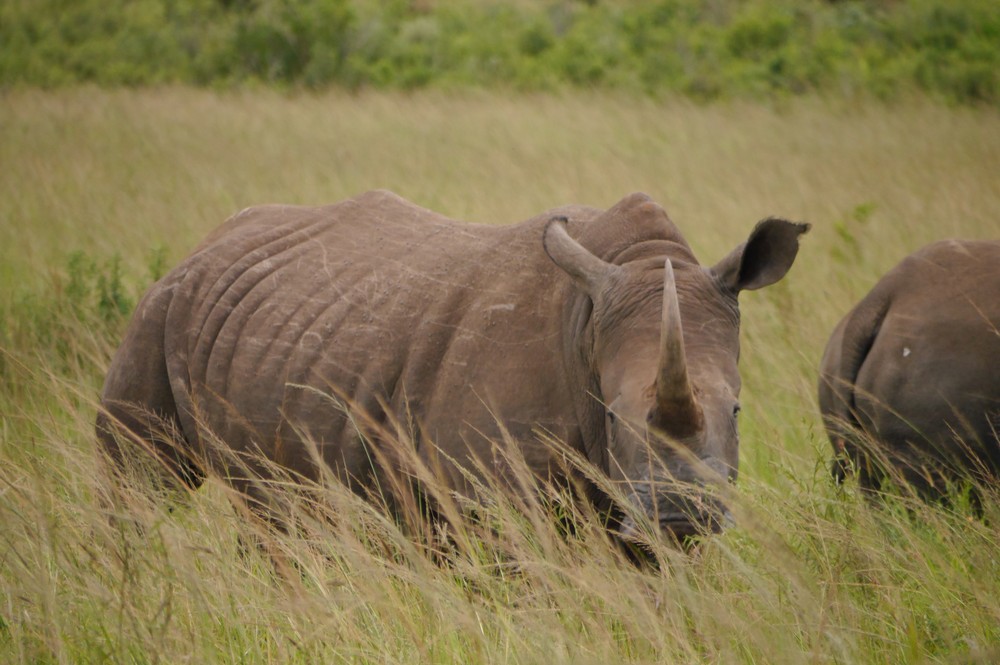This article was written by Simon Barnes and published in his Wild Notebook column in The Times on Saturday 21 July 2012
A generous offer puts us on the horns of a dilemma
All tenners are equal, but some are less equal than others. That’s an important principle to bear in mind when you are trying to do a bit of good in the world and are desperate for cash to do it with. It takes a bit of guts to say thanks but no thanks to £10,000.
It’s the sort of thing that all charities – but perhaps wildlife charities in particular – have to keep in mind all the time. You have to be unbelievably careful about what you do with the money, for the excellent reason that it’s not your money. You also have to be unbelievably careful about who you take your money from.
The Olympic Games takes money from McDonald’s and Coca-Cola, which in my view is grotesquely inappropriate. Wildlife charities have to be careful that they are not being used for greenwash: to give a bogus air of respectability to a destructive organisation. If you’re a charity protecting bogs, you don’t accept donations, however tempting, from people who sell peat.
I am a patron of Save the Rhino and we have had disagreements in the past about what money to accept and what not to accept. But the charity is absolutely right to turn down this ten grand. Not that it couldn’t do wonderful things with it, but it’s the wrong ten grand.
It was offered through Mallams the auctioneer. Someone had inherited an 18th century libation cup made from rhino horn, sold it at auction and wanted to make a donation. The cup went for more than £200,000, but the sale didn’t go through because the purchaser was arrested for smuggling. It was then sold for £64,000. You can’t pick and choose what you inherit. It’s a splendid windfall for the vendor and a nice gesture to the charity; not one you have to make, after all. So what’s the problem?
The problem is the dramatic escalation – the sudden spike, if you prefer – in rhino poaching over the past two or three years. The wealthier China becomes, the greater the demand for rhino horn (no, it’s not an aphrodisiac, it’s supposed to cure fever, rheumatism and gout).
The more rhino horn being bought and sold, the more heated the market. So the sale of the horns of rhinos long dead is contributing to the death of the rhinos we still have left – five species, all in various degrees of vulnerability. Save the Rhino is in the business of trying to prevent the very thing that bought it the offer of the ten grand. So there’s a logic to turning down the donation.
And there’s also the emotional question, and that matters to a charity. People support a charity because they feel good about it. It’s the tide of good feeling that keeps charities afloat: it’s not something you jeopardise for one nice cheque. If it doesn’t feel right, it’s probably wrong.
The issue has come up before. Save the Rhino was sent a cheque for £500 from Clevedon Salesrooms, which arose from the sale of a walking stick with a rhino-horn handle. This too was turned down.
Back in 2009, before the poaching situation became critical, Save the Rhino did accept a donation of £1,000 after a libation cup shown on Antiques Roadshow was sold. The vendor went on to run the London marathon for Save the Rhino and took part in Rhino Trek South Africa.

It’s a minefield. So much of wildlife conservation is carried out by non-governmental organisations; charities that work on public goodwill and, by extension, financial support from commercial organisations.
But they exist on trust; we rely on an organisation we support to be scrupulous. Organisations that spend unacceptable sums of money on admin or fundraising – as opposed to saving tigers or rainforest or hungry children – will lose support.
There is a sense in which we delegate our own conscience when we make a charitable donation; we trust that the organisation will do the job righteously.
And if we ever get the impression that it is not doing so, we don’t react calmly. We feel betrayed, exploited, outraged, inclined to give up that organisation, inclined to give up that sector of charitable giving, inclined to keep our bloody money where it will do us most good.
A few years ago, a couple inherited a rhino-horn trophy and didn’t feel comfortable with it. So they gave it to Save the Rhino, which used it for education.
But as the rhino horn market really got going, there were more and more reports of robberies of rhino horn from museums, auction houses and zoos in Europe. So Save the Rhino gave the horn, via the police, to the UK Border Agency. It’s being used to train sniffer dogs who nose out smuggled rhino horn.
Save the Rhino has lost ten grand then. But it’s kept its credibility, and that’s worth a great deal more money. Meanwhile, its work goes on, trying to ensure that we still have a planet on which five species of stonking great one and two-horned monsters eat, breathe and get on with the job of making more rhinos.
© The Times <07 2012>








